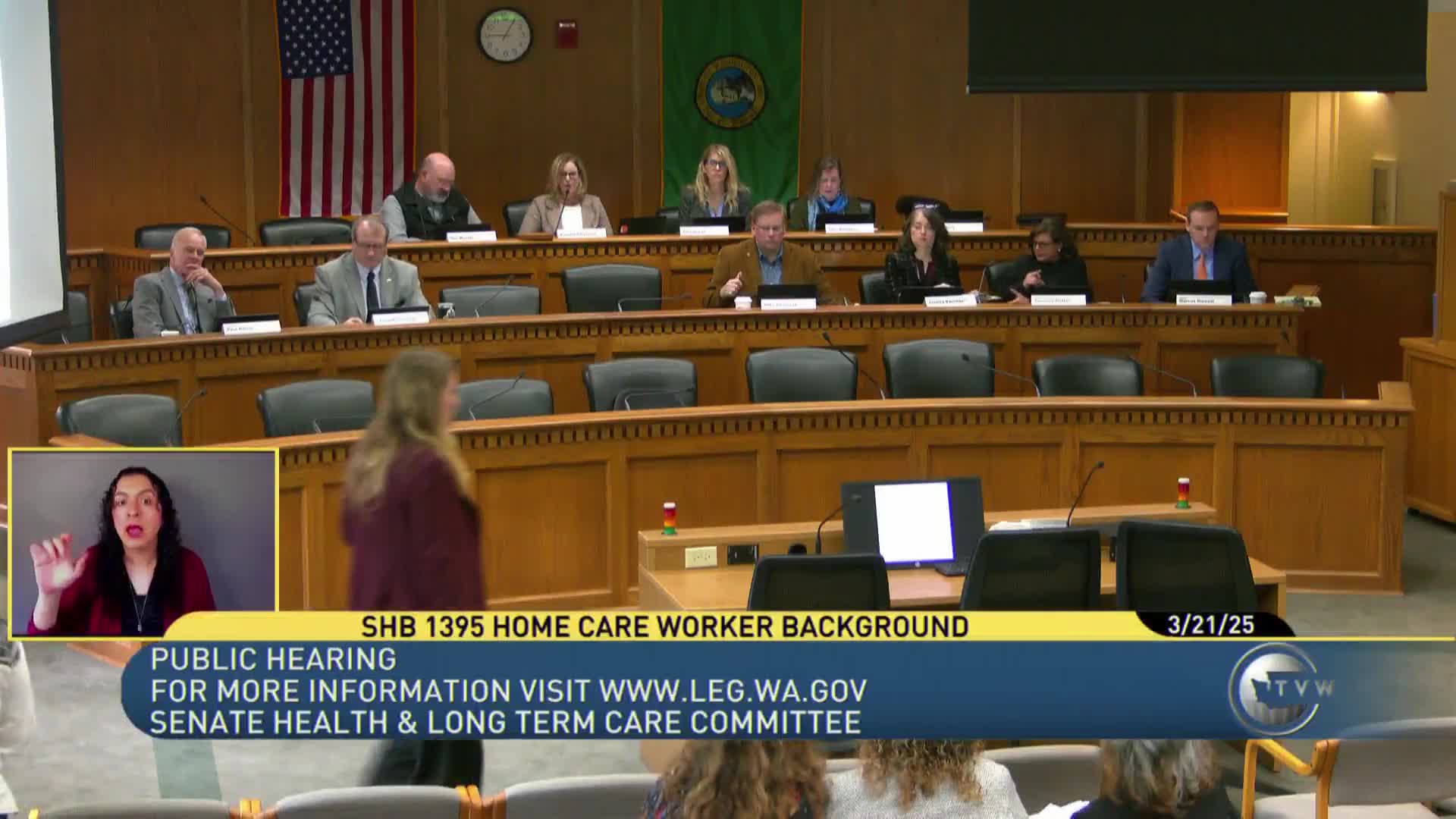Hearing on streamlining home‑care worker background checks spotlights long delays and gaps in paid care
Get AI-powered insights, summaries, and transcripts
Subscribe
Summary
Caregivers, union representatives and employers testified in favor of House Bill 13 95, which would streamline background checks and allow home‑care workers to continue paid work for up to 30 days while certain character, competence and suitability (CCNS) reviews proceed.
Supporters of House Bill 13 95 urged the Senate Health & Long Term Care Committee to streamline the state’s background check process for long‑term home‑care workers, saying current procedures cause unpaid interruptions in care and disproportionately harm immigrant and non‑English‑speaking caregivers.
Shane Trescott, vice president of SEIU 775 (the caregivers’ union), said Washington has strong caregiver standards but an unwieldy review system: "Based on a 2024 survey of our membership, 20 percent of caregivers reported having issues going through this process," Trescott said, and delays often pull caregivers out of paid client care while paperwork is pending.
Neli Prieto, a paid caregiver from Sunnyside, described a 27‑year‑old dismissed ticket that triggered a CCNS review during a background check renewal; she said the delay left her client alone and the client died while unpaid care was pending, and she asked the committee to pass the bill so similar tragedies do not recur.
Sponsor Representative Daria Farivar described the bill as a bipartisan compromise developed with providers, advocates, unions and the Department of Social and Health Services (DSHS). The bill would (1) allow an employer to avoid a CCNS review if the same conviction or charge was already reviewed for that worker, or if more than 10 years have passed since the last non‑disqualifying offense; (2) allow a long‑term care worker to work with unsupervised access to minors and vulnerable adults for up to 30 days while a CCNS review is conducted; and (3) limit when fingerprint‑based checks must be repeated, retaining initial FBI/state fingerprint screening at hire and mandatory two‑year state checks.
Employer representatives, including Brad Banks of the Washington Home Care Coalition, told the committee workforce shortages are worsened when vetted caregivers are delayed by repeat reviews and cannot be matched to clients; Banks said nursing‑home placement would be a more costly outcome for many clients if home care gaps persist.
Multiple caregivers and family providers recounted repeated fingerprint and review cycles tied to decades‑old records; Maria Osegueda said an immigration charge flagged her background check repeatedly and forced her into unpaid status multiple times.
Supporters said the bill preserves disqualifying standards and initial fingerprint requirements while reducing administrative burden, protecting the caregiver workforce and preventing avoidable gaps in paid care. The committee closed the public hearing on the bill; no committee vote is recorded in the transcript.
